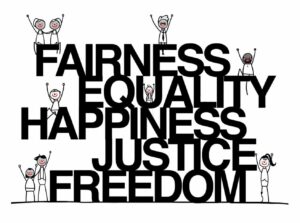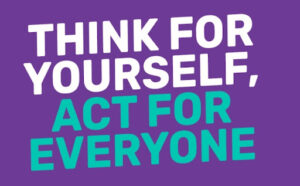 Throughout recorded history there have been non-religious people who have believed that this life is the only life we have, that the universe is a natural phenomenon with no supernatural side, and that we can live ethical, meaningful, and fulfilling lives on the basis of reason and humanity. They have trusted to the scientific method when trying to understand how the universe works, made their ethical decisions based on a concern for the welfare of human beings and other sentient animals, and sought to make a positive contribution towards building a better society.
Throughout recorded history there have been non-religious people who have believed that this life is the only life we have, that the universe is a natural phenomenon with no supernatural side, and that we can live ethical, meaningful, and fulfilling lives on the basis of reason and humanity. They have trusted to the scientific method when trying to understand how the universe works, made their ethical decisions based on a concern for the welfare of human beings and other sentient animals, and sought to make a positive contribution towards building a better society.
Today, people who share these beliefs and values are called humanists and this combination of attitudes is called humanism.
‘For as long as there have been human beings, there have been non-religious people whose view of the world can be described as ‘humanist’: informed by evidence, inspired by empathy, and infused with hope and wonder for the world around us.’
Andrew Copson, Chief Executive, Humanists UK
‘Being a humanist can be demanding. It means, when deciding what to believe or how to act, you have to do the thinking for yourself. You have to take responsibility for your own life. You have to take on what, for some, can appear like uncomfortable facts about reality. But it can also be enormously rewarding. It can be liberating and life-enhancing.’
Sandi Toksvig, Patron of Humanists UK
Humanism is an approach to life that can be found throughout recorded history and is shared today by many millions of people in the UK and around the world. However, many of such people have not heard the word ‘humanism’ and don’t realise that it describes what they believe.
‘I was a humanist without knowing it for many years before I found the British Humanist Association – when I did, it was like finding a sort of home. Here were people with a range of views that matched my own.’
Claire Rayner, former Humanists UK Vice-President
 There is no obligation for humanists to take part in any form of organised humanism. However, many will join groups such as Humanists UK. Humanists UK has been around since 1896. It provides services to support non-religious people and campaigns on issues where it believes the non-religious are treated unfairly.
There is no obligation for humanists to take part in any form of organised humanism. However, many will join groups such as Humanists UK. Humanists UK has been around since 1896. It provides services to support non-religious people and campaigns on issues where it believes the non-religious are treated unfairly.
There are many other humanist organisations around the world – in Europe, Africa, Asia, and the Americas. They share many similar ambitions and goals. However, the rights and freedoms of non-religious people vary – in some countries it is illegal to be non-religious and one can be imprisoned or even killed. Humanists International is an organisation that works to support humanists and other non-religious people all around the globe.
‘What being a humanist means to me is taking a stand with humanity, taking a stand inspired by human rights and human values… Humanism is a way of thinking and living that emphasises the agency of human beings. Humanism stresses the fact that we, human beings, are capable of changing the world.’
Leo Igwe, Nigerian Humanist Association
We can find humanist ideas over 2,000 years ago in ancient India, China, and Greece. Humanist thinking became increasingly popular during a period called the Enlightenment in the 18th century. Many of the thinkers who have been influential on humanism would not have used the word ‘humanist’ to describe themselves. However, their approach to answering questions and making choices without the need for religion means that many humanists today see them as part of the humanist tradition.

On Understanding Humanism we divide the humanist approach to life up into five core features.
| 1) Human beings: Humanists believe that human beings have natural origins. We evolved naturally like all other living things. We have evolved many capacities and, if we put them to good use, we have the potential to lead good and happy lives. |
| 2) Understanding the world: Humanists believe the world is a natural place with no supernatural side (they will be atheists or agnostics). They believe that science and the search for evidence provides the best way to answer our questions about the world. |
| 3) The one life: Humanists believe this is the one life we have and so we need to make the most of it. For humanists, there is no single ‘ultimate’ meaning of life. Instead, it is up to us to make our own lives meaningful. They believe we should be free to decide how we live (as long as we do not cause harm to others), seeking happiness and supporting others to do the same. |
| 4) Humanist ethics: Humanists believe that the origins of our moral capacities lie inside human beings and our evolution as social animals. They believe that, when deciding how to act, we should use reason and empathy, considering the consequences of our actions and the likely impact on other people and animals. |
| 5) Humanism in society: Humanists believe that human beings alone are responsible for making the world a better place. Many campaign for equality, human rights, and secularism. Many celebrate the progress humanity has made, but recognise the work that is still to be done. |

Humanists UK
39 Moreland Street
London EC1V 8BB
education@humanists.uk
@HumanismEdu

© Humanists UK 2025. Registered Charity No. 285987
humanists.uk | Privacy
Illustrations by Hyebin Lee